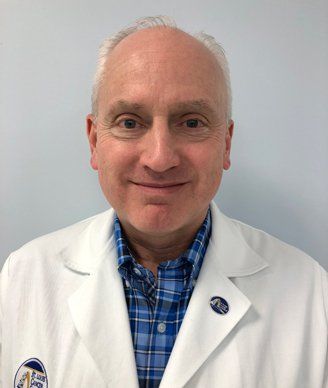It Is Easy to Forget
It is an exciting time for science, but lest we forget, those of us who provide direct patient care are also charged with practicing the art of medicine.
Craig R. Hildreth, MD

Pardon my bias, but I believe that medical oncology has become the most rewarding branch of medicine in service today. The advent of new immunotherapy agents has improved the prognosis of many traditionally tragic diseases, such as melanoma and lung cancer. It’s not that these new treatments work every time, but that they are better than chemotherapy in prolonging life. Plus, they raise the long-term survival up from a few lucky patients to 20% to 30% of all treated. It’s an exciting time to be practicing the science of cancer medicine. I find myself a-tingle contemplating all of the new options available for my patients. (Some of my more skeptical colleagues find this comical, but, hey, eternal optimism is one of the attributes that makes for good oncologists.)
The science of oncology is bursting with new data, from injecting a modified herpes simplex virus directly into melanoma tumors, to engineering T cells to produce artificial receptors that seek out and destroy cancer cells. Some experts say we are at the dawn of a new era leading to the eradication of several types of cancer.
Yes, it is an exciting time for science, but lest we forget, those of us who provide direct patient care are also charged with practicing the art of medicine. Patients don’t get their treatments from a vending machine-they must sit and listen to a doctor explain what it is they need, why they need it, and what the risks involved are, and this discussion is only a small aspect of our overall commitment to our patients. Among many things, oncologists must not neglect the unique symptoms and difficulties that their patients bear.
With this in mind, let me share some recent humbling episodes from my clinic. There is nothing like a cancer patient to remind us of all the things we who are healthy take for granted.
When I put food in my mouth I swallow it perfectly. I met with a patient last week who cannot get anything, not even fruit juice, past his esophageal tumor. Solid food is only a memory for him, and he has lost 20 pounds in a month. When was the last time we worried about not being able to eat, to maintain our weight?
When I come to a set of stairs I plant my foot with confidence. Countless times I have asked a patient to hop up onto the exam table only to see them unable to negotiate the solitary step. I ask them, “Do you have any stairs at home?” and the answer is always “No.” How do we maneuver through the day if all staircases are off-limits to us?
I rarely have to take an ibuprofen. Pain is the great destroyer of happiness. It is the unwanted constant companion of cancer patients, hampering plans for the day, every day. Those of us who have experienced severe pain-how does one cope knowing that they must depend on narcotics from now on?
I almost forgot to take out the trash. What we call the activities of daily living-doing laundry, dusting, driving-is often lost to people living with cancer. Can you imagine not being able to cook, or shop, or go to your kids’ events?
I woke up this morning in a great mood. Those of us who give thanks for our good job, great spouses, wonderful families and friends-so do our patients. The difference is that cancer robs us of the peace of mind we take for granted in our lives. Sure, everyone goes through worrisome times, but people living with cancer must confront unceasing anxiety about the future. What is it like to go about your day knowing that you will soon be gone?
As we come to the end of this year, let us remember that cancer patients cannot take anything for granted. We honor them by bearing in mind that all we do with ease is not easy for them to do.
How Supportive Care Methods Can Improve Oncology Outcomes
Experts discussed supportive care and why it should be integrated into standard oncology care.